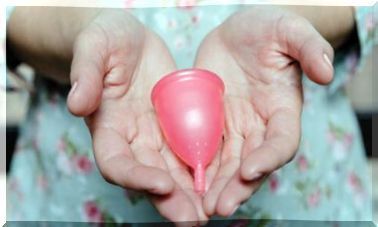What Is Urinary Incontinence And How To Live With It
Urinary incontinence consists of an involuntary loss of urine, which arises mainly when coughing or exerting some force. It is, in short, a sudden urge to urinate and the inability to retain urine.
It can occur at any age (although it is more common in older people) and both men and women are exposed to them. However, it is more common in women, especially in those who have had several children and vaginal deliveries. In this article we will tell you more about it and we will give you some tips to cope with it.
Why does urinary incontinence occur?
Incontinence can occur due to a weakening of the pelvic muscles. This weakening can be caused by certain medications, childbirth, some surgery of the pelvic area, excessive consumption of tobacco or vaginal infections, among others.

The doctor may, in not very serious cases, ask you to write down how much you drink, when you urinate, how much urine you produce, if you felt the urge to urinate and how many episodes of incontinence you had.
3. Physical examination
The doctor examines the area for any abnormalities. They may also ask you to laugh or exert yourself that could trigger urine leakage.
4. Imaging tests
This section includes video cystourethrography, ultrasound or magnetic resonance imaging. These tests will determine if there are dysfunctions in the urinary tract.
Recommendations for coping with urinary incontinence
Change of habits
You need to reduce your fluid intake, if you are taking in more fluids than recommended, in order to avoid excessive urine formation. Fluid consumption should be distributed by drinking more in the morning and decreasing drinks as the day progresses.
Try to go to the bathroom frequently, in order to decrease the amount of urine that leaks out. It would be convenient that you establish a schedule.
In addition, you should avoid sudden movements that cause urine leakage, eliminate alcohol consumption and do not spice food too much as they can irritate your bladder.
Exercises the pelvis
You may want to start doing exercises to strengthen your pelvic floor muscles. In addition, you also have a device called a vaginal cone, with which you can exercise the pelvis by putting it in the vagina. The idea is that you contract your pelvic floor muscles.
Medicines

There are many medications used for incontinence, including drugs to control overactive bladder, such as anticholinergics. We also find antimuscarinic medications that help relax the bladder and prevent involuntary contractions.
Lastly, we have alpha-adrenergic agonist drugs that relax the muscles of the bladder neck and the muscle fibers of the prostate, while making it easier for the bladder to empty.
Surgery
Surgical treatment is the last measure taken for this problem. There are several types of surgery depending on the type of problem we have: pelvic sling, bladder neck suspension or prolapse surgery. Most doctors advise their patients to try other treatments before having surgery.
As you have seen, urinary incontinence is a very annoying problem that affects more people than we think. However, we have numerous treatments for your cure.
The problem is that it is a condition that also affects the external appearance, so it can cause difficulties such as loss of self-esteem, discontinuity in sexual activities, self-shame, anxiety, depression, sadness and social isolation. Therefore, if you suffer from incontinence, it is best that you go to the doctor to have some tests done and to be able to treat the problem as soon as possible.









